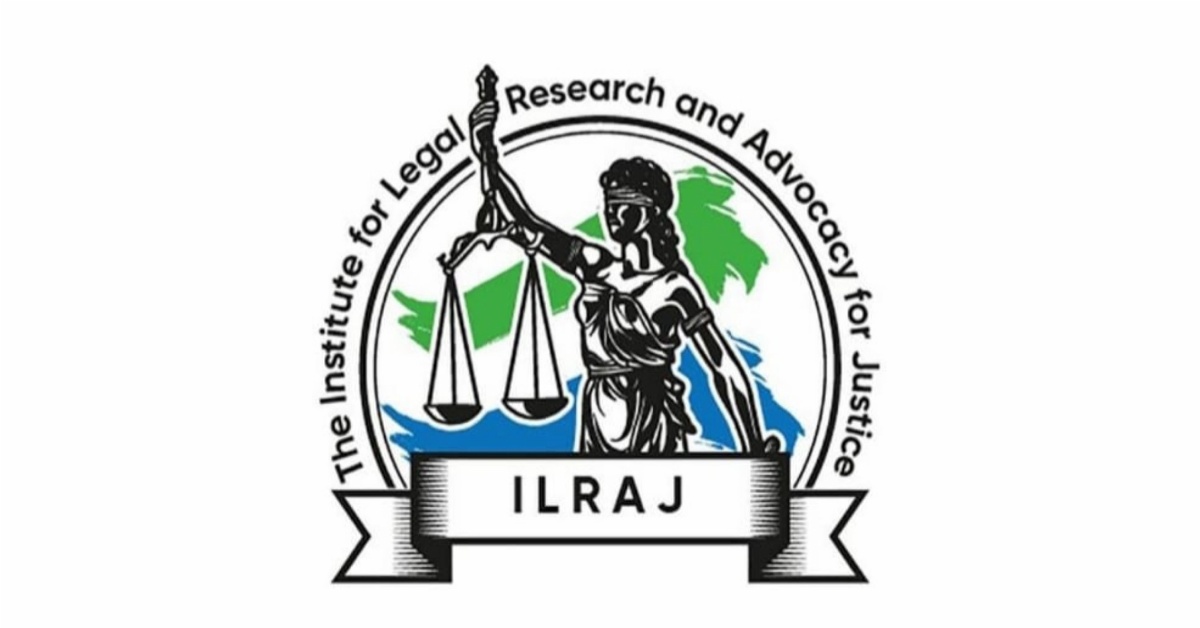The Institute for Legal Research and Advocacy for Justice (ILRAJ) has issued a powerful position paper titled “Addressing Issues Relating to School Safety in Sierra Leone,” highlighting critical lapses in school oversight and calling on the Government of Sierra Leone to urgently act to prevent further tragedies involving children in educational institutions.
The paper is a response to two recent incidents that have shocked the nation. On November 8, 2024, 8-year-old Khadija Jalloh tragically died after allegedly being sexually assaulted by her teacher. Medical reports confirmed the abuse prior to her death, and the suspect was arrested. Months later, on March 18, 2025, two young boys were found dead from suffocation inside a parked vehicle within the premises of the National Pentecostal School on Fort Street, Freetown.
A third child, a 4-year-old girl, was found in critical condition. The incident, which initially sparked fears of ritual killing, led to public outrage and protests, underscoring widespread concern over inadequate school security.
In its report, ILRAJ warns that these incidents are not isolated, but symptomatic of deeper structural failures, including the lack of proper vetting for teachers and school proprietors, insufficient supervision, and poor enforcement of child protection laws.
“These heartbreaking tragedies reveal a crisis in school safety,” the report states. “Children are being exposed to danger in what should be safe learning environments. The government must act decisively to restore trust and ensure accountability.”
ILRAJ’s paper outlines several systemic weaknesses:
Inadequate Vetting: Schools are hiring individuals without thorough background checks, putting children at risk of abuse.
Lack of Security: Many school compounds are unfenced and lack trained security personnel, allowing unsafe situations to develop unnoticed.
Poor Reporting Mechanisms: Victims and families often fear stigma or retaliation, while schools lack proper channels for reporting abuse.
Delayed Justice: Investigations into serious incidents are slow, contributing to a culture of impunity and mistrust.
Despite the existence of the Basic and Senior Secondary Education Act 2023 and the Comprehensive School Safety Policy 2023, ILRAJ notes that poor enforcement and infrastructure continue to undermine their effectiveness. The Teaching Service Commission Act 2011 and the 2019 Code of Conduct for Teachers provide standards and disciplinary measures, but ILRAJ says they are not being rigorously applied.
To address these challenges, ILRAJ outlines a series of urgent recommendations:
Mandatory background checks for all school proprietors and educators, including criminal and financial history.
Strict enforcement of fencing and security measures, including the deployment of trained personnel at school entrances.
Installation of surveillance systems in schools to deter and document abuse.
Confidential national reporting system for students, parents, and staff to report abuse, with swift investigations.
Regular, unannounced inspections by School Quality Assurance Officers.
Awareness campaigns and parent involvement in school safety planning.
Enforcement of ID and handover protocols for student pickups.
Fast-tracked investigations into school-related incidents, with legal consequences for perpetrators, including life imprisonment for sexual penetration of minors.
IILRAJ emphasizes that the safety of Sierra Leone’s children must become a national priority. “The deaths of Khadija Jalloh and the Fort Street pupils must never happen again,” the paper concludes. “Schools must be sanctuaries of learning, not sites of fear and harm. The time for action is now—our children’s lives depend on it.”
The Institute reaffirmed its commitment to working with the Ministry of Education and other stakeholders to ensure schools across Sierra Leone become safer for all children.




 Post a comment
Post a comment










